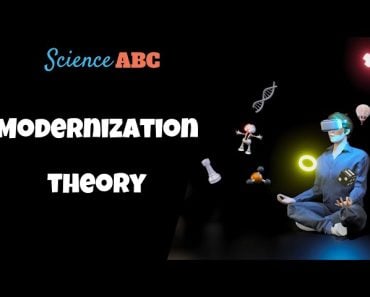Explore the intricate realm of online learning platforms and their impact on education. Delve into how Cleveland State is utilizing these tools to enhance the learning experience. Understand the science that drives these platforms and their relevance in modern education.
Recommended Video for you:
The Transformation Of Online Learning
Online learning platforms have significantly changed education by making knowledge accessible to a broad audience. At Cleveland State, these platforms have been embraced to provide flexible learning opportunities tailored to diverse student needs. As you explore this digital transformation, consider how science and technology facilitates personalized learning experiences, catering to individual strengths and weaknesses. For instance, MSN online nursing programs exemplify how specialized fields can thrive within digital realms. The progression of these platforms reflects a broader shift to integrating technology with traditional teaching methods, leading to more engaging and effective educational experiences.
The rapid advancement of online learning platforms has led to the development of sophisticated Learning Management Systems (LMS) that cater to diverse educational needs. These systems integrate features like discussion forums, virtual classrooms, and adaptive learning modules, creating a comprehensive digital ecosystem for education. At Cleveland State, the adoption of state-of-the-art LMS has facilitated seamless collaboration between students and faculty, transcending geographical boundaries. This transformation has not only improved accessibility but also fostered a global learning community, where ideas and knowledge can be shared instantaneously across continents.
Key Components Of Successful Online Platforms
To fully comprehend the success of online learning platforms, it’s crucial to recognize their core components. User-friendly interfaces, interactive content, and real-time feedback are essential for maintaining student engagement. Amid this digital revolution, educators must balance technological advancements and science with pedagogical principles to ensure meaningful learning outcomes. The integration of multimedia elements like videos, quizzes, and simulations transforms passive learning into an active process. What’s more, enhancing accessibility through mobile-friendly designs ensures that students can learn anywhere at any time, further broadening educational reach.
Adaptive learning technologies represent another crucial component of effective online platforms. These systems use artificial intelligence to adjust the difficulty and pacing of content based on individual student performance. By continuously analyzing user data, adaptive learning platforms can identify knowledge gaps and provide targeted resources to address them. This personalized approach ensures that each student receives a tailored learning experience, maximizing their potential for academic success. Cleveland State’s implementation of adaptive learning tools has shown promising results in improving student outcomes across various disciplines.
The Role Of Analytics In Enhancing Education
Analytics play a pivotal role in refining online education by providing insights into student performance and engagement levels. By leveraging data-driven strategies, Cleveland State can tailor content delivery to better suit learner preferences and needs. This not only enhances student satisfaction but also improves retention rates by addressing potential challenges early on. Analytics also enable instructors to identify trends and patterns in student behavior, fostering a more responsive educational environment. Consequently, students receive a better customized learning experience that aligns with their academic goals and aspirations.
Predictive analytics has emerged as a powerful tool in the realm of online education. By analyzing historical data and current trends, institutions like Cleveland State can forecast student performance and identify those at risk of falling behind. This proactive approach allows for timely interventions, such as additional support or resources, before academic challenges become insurmountable. Predictive analytics can also inform curriculum design by highlighting areas where students consistently struggle, enabling educators to refine course content and delivery methods. The integration of these advanced analytical tools is transforming online education from a one-size-fits-all model to a dynamic, responsive system that adapts to the evolving needs of learners.
Future Trends In Online Education
The integration of blockchain technology in online education is poised to revolutionize credential verification and skill certification. This decentralized system offers a secure and transparent method for storing and sharing educational achievements, reducing the risk of fraud and simplifying the process of credential validation for employers. Cleveland State is exploring the potential of blockchain to create a comprehensive digital record of student accomplishments, including micro-credentials and non-traditional learning experiences. This innovation could lead to more flexible and diverse educational pathways, allowing students to create personalized learning journeys that align with their career aspirations and industry demands.
Wrapping Up
The future of online education is poised for exciting developments as science and technology continues to advance. Emerging trends such as artificial intelligence and virtual reality are set to redefine the way we perceive digital learning environments. At Cleveland State, keeping pace with these trends ensures that students receive cutting-edge education that prepares them for real-world challenges. Embracing these innovations not only enhances the quality of education but also promotes lifelong learning by instilling adaptability and resilience in students. As you navigate this evolving landscape, it’s essential to remain informed about the latest advancements that could influence the trajectory of education.












